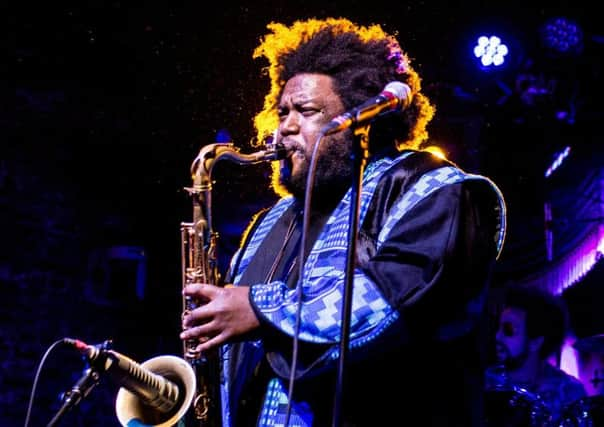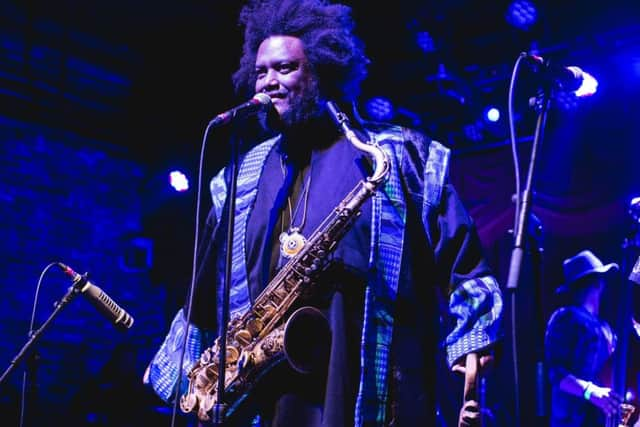Gig review: Kamasi Washington at Leeds University Stylus


Recently, a small group of interlinked US musicians have been making sounds that, whilst respectful of the genre’s past masters, catapult jazz into the playlists of people who are unlikely to put on some Albert Ayler to unwind.
Kamasi Washington is the brightest star of this resurgence. The 35-year-old saxophonist’s triple-album The Epic – tonight’s 90-minute set seems a mere sprint next to the record’s three hour girth – was one of 2015’s most acclaimed releases. That the album’s appeal has stretched far beyond the usual jazz circles is evident in tonight’s demographically diverse, enthusiastic crowd.
Advertisement
Hide AdAdvertisement
Hide AdPerhaps ironically considering Washington’s reputation as the modernising antithesis of a staid jazz traditionalist, the points of reference for this expansive (for touring purposes, Washington’s had to scale back from the full string, brass and choir-laden 20-odd musician sprawl of The Epic to a tight eight-piece band, many of whom appear to be the bandleader’s long-time friends according to the affectionate anecdotes that pepper the set, and one of whom, flutist Rickey Washington, is his dad) music are unmistakably in the past. But what a section of the musical past Washington’s chosen.


From the heady psychedelic jazz/soul balladry of ‘Henrietta Our Hero’ – a chance to shine for singer Patrice Quinn whose interpretative hand movements offer a visual focal point in a set where showmanship otherwise consists of musicians focusing intently on squeezing the correct sounds out of their instruments – to the bubbling analogue synth P/G-Funk of keyboardist Brandon Coleman’s brilliant showcase ‘Giant Feelings’, any and all sub-genres of spiritual, cosmic and just downright funky American rhythm music from the late 60s and early-to-mid 70s, filtered through hip-hop’s liberal and playfully distorting sampling of the same stuff, are valid points of reference in a set that chooses the open-eared ethos of cult figures such as Sun Ra and Pharoah Sanders over an adherence to any particular style, sound or era.
Any doubts about which style of music is closest to Washington’s heart are rendered obsolete as soon as the set soon lifts off to fiery rounds of soloing, with tempos and melodies fraying and bending at the edges in the improvisatory heat of the moment, with ample time in the spotlight given to each musician.
Whilst some idling is unavoidable in a set given to extended improvisations, a few upper register squeals a la late period John Coltrane is as discordantly avant-garde as it gets. There’s little evidence of tedious, technically proficient showing-off for the other musicians in the house.
Advertisement
Hide AdAdvertisement
Hide AdThe extensive compositions are unfailingly founded on solid, punchy hooks and you find yourself too busy responding to the rhythm to obsess over the finesse of the technique on display.


By the time a drum solo builds into a lopsided groove that’s reminiscent of the unsteadily sequenced samples used by experimental beat merchants, seamlessly linking the jazz tradition of instrumental showcases to cutting edge hip hop production techniques, you get an idea of how Washington and co. have been so successful in rejuvenating jazz: they’re taking it right back to its roots as dance music.